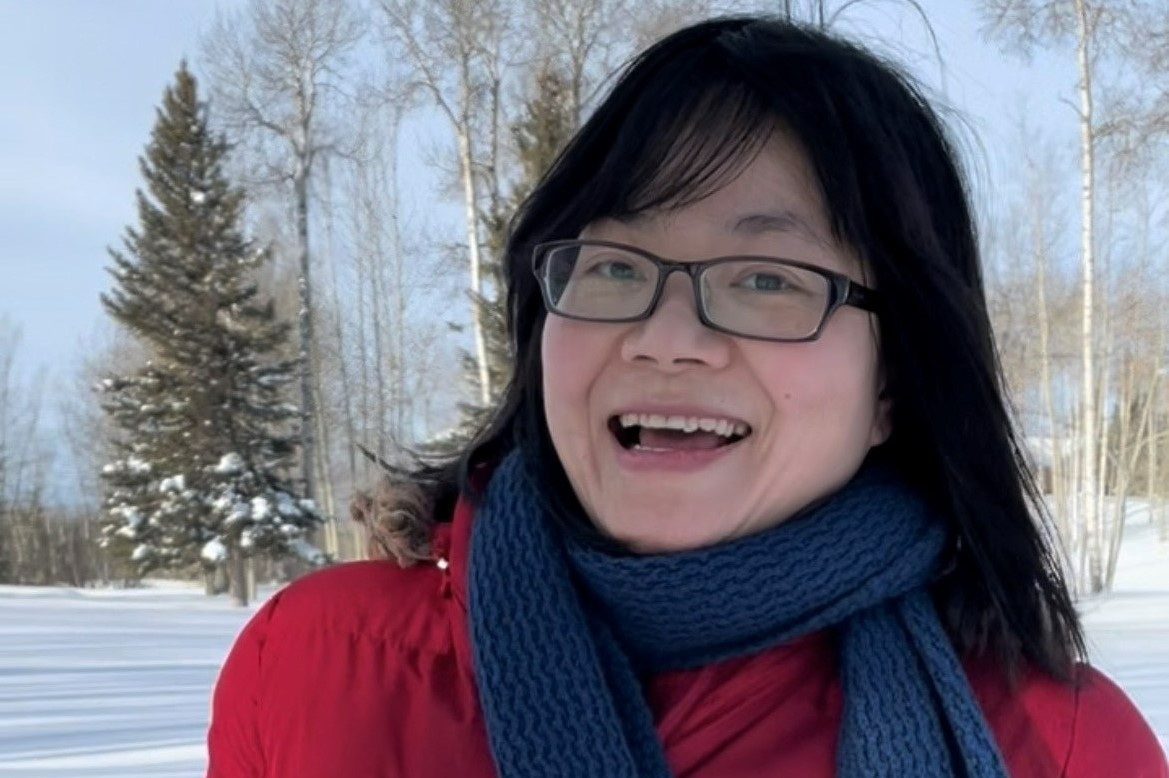Bridging education gaps in Canada’s north
Story

Cuso International volunteer Kim Quy Nguyen shares the value of education as she supports students in Fort Resolution, N.W.T.
Kim Quy Nguyen knows how difficult it can be to reconcile the past and present and heal traumas and injustices that have devastated and divided people for generations. She recently immigrated to Canada from Vietnam, where citizens continue to struggle with resentments and divisions created by the Vietnam War.
But Kim also believes in progress and healing. It is this hope that she carries with her in her volunteer work with Cuso International in Fort Resolution, Northwest Territories, where she supports the Deninu Kue First Nation community as an educational assistant in the Deninu School.
“I think it is important to have some belief in progress. There is the trauma of the past but there is also progress,” says Kim, who started her placement in August 2021. “And with this belief, there is the ability to work together to elevate these communities, and to engage the whole country in the bigger task of becoming a greater country.”
In Fort Resolution, Kim supports teachers with their class planning and works with individual students who need additional help in subjects such as math, biology, and English. She says an important part of the work is gaining students’ trust so they feel comfortable opening up to her about any struggles they may be having both in the classroom and beyond. Attendance is an issue, with only one-third of enrolled students attending school regularly, and many struggle with deep motivational issues.
“With one particular student, I could see that she is very smart and could solve problems well in math. But she was missing school, kept missing deadlines, and wasn’t doing the work at home,” says Kim, who holds a PhD in education and has worked and taught in Australia and the United Kingdom, as well as in Vietnam. “I adapted my way of working with her, knowing that we needed to spend time after school on assignments.”
Over time, and through many after-school learning sessions – sometimes over dinner, too – Kim formed a bond with the student, and she began to see changes. Assignments were completed and she ultimately passed her classes, scoring high in biology.
“That experience was an important lesson for me … I understood more about the tensions here, between the families and the school,” says Kim. “There is an imbalance, and there needs to be engagement from both sides, to give the student the best experience.”
As a newcomer to Canada, Kim says her work in the small community has given her a richer experience of the country she now calls home and has broadened her knowledge about Canada’s complex history. She has marvelled at the community’s cultural traditions and the beauty of the north, particularly the awe-inspiring northern lights, which she never gets tired of looking at. “You feel elevated, lifted up,” she says.
Kim hopes communities in the north will receive more support, especially from teachers and schools, volunteers, and organizations like Cuso International.
“In my role, I try to facilitate communication between the student and the teacher, but I am also aware of my limitations, as I did not attend high school here in Canada,” she says. “But I can still share my experience, how education helped me to go all over the world. I want to show these students the value of education.”